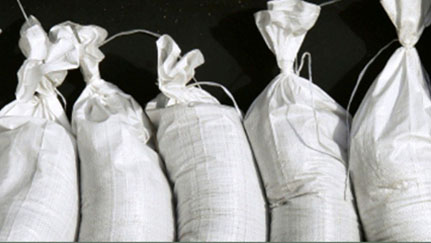Loading...
Are you ready for the next flood?
Prepare with the following flood safety tips

Floods damage or destroy more homes than any other natural disaster — causing $2 billion-plus in property damage every year.1 Nationwide Private Client recommends that homeowners who may be susceptible to urban flooding make preparations to help prevent the effects of heavy rain from damaging their home and possessions. Here are some tips to get you started.
Before a flood
- Install backflow valves or standpipes to prevent sewer lines from backing up.
- Install a sump pump system if you have below-grade floors.
- Landscape with plants and vegetation that resist soil erosion.
- Consider storing irreplaceable family items and important documents somewhere other than the basement.
- Keep an inventory of all your valuables.
- Install a flood-detection device that sounds an alarm or calls your phone if it senses water — typically, in your basement.
- Purchase flood control barriers and know how to use them.
- Designate a safe location for your family to gather in case of emergency.
- Keep a disaster preparedness kit at your home and in your vehicle. At a minimum, this should include water, non-perishable food, a first-aid kit, a battery-powered radio, flashlights and extra batteries.
During a flood
- Turn off utilities at the main power switch, if you can do so safely. If you can’t reach the main power switch safely, call your electric utility or a licensed electrician to shut off power at the meter. Never try to turn off the power switch if you must stand in water to do so.
- Move valuables, important papers and clothing to upper floors. If you have only one floor, put items on shelves, tables or countertops.
- Never try to drive through a flooded area. You can lose control of your vehicle or your car could stall in as little as six inches of water.
- Never walk through flooded areas. You have no idea what damage could be below the surface or if the water is carrying a live electrical current from a downed power line.
- Monitor the storm and any instructions from your local authorities.
After a flood
- If you had to evacuate your home, check with authorities before returning to ensure it is safe to do so.
- Don’t turn your power back on until an electrician has inspected your system.
- In cases of significant and widespread flooding, water supplies can be polluted. Follow instructions from local authorities on what to do until drinking water is once again safe.
- If your home and possessions have suffered damage, document everything using a camera and create an inventory of damaged property.
- Contact your insurance agent and insurance carrier immediately to report your claim and get assistance with the clean up process.
If you have a basement, consider a consultation with an expert who can help with drainage systems, sump pumps, flood control barriers and waterproofing.
If you have any questions, please contact your agent or Nationwide Private Client Risk Solutions professional. For more information on how you can help prevent losses, visit nationwide.com/solutionseries.
We offer this information to assist you in making decisions that can help mitigate your risk. While we cannot address every possible scenario or guarantee these tips will work for you, our goal is to support your efforts to protect yourself and your family.
[1] According to FEMA – National Flood Insurance Program (NFIP)